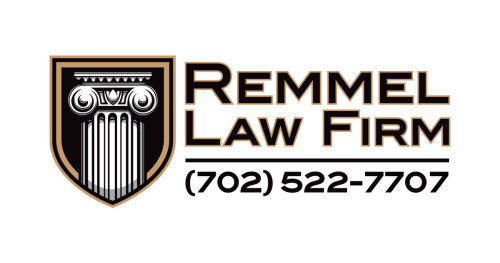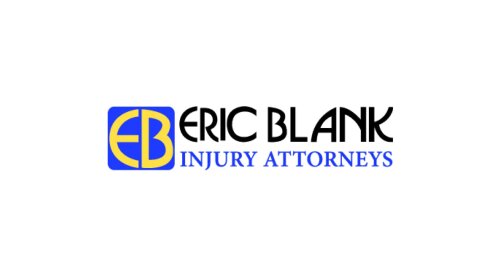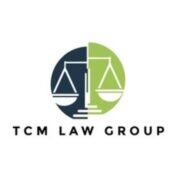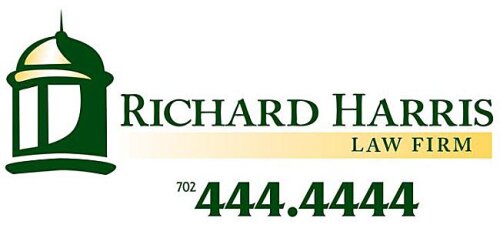Best Class Action Lawyers in Las Vegas
Share your needs with us, get contacted by law firms.
Free. Takes 2 min.
List of the best lawyers in Las Vegas, United States
About Class Action Law in Las Vegas, United States
Class action lawsuits allow a group of people who share the same or similar legal claims against the same defendant to sue as a collective. In Las Vegas, United States, class actions can be brought in Nevada state courts or in federal courts when the case meets federal requirements. Common class action topics include consumer fraud, false advertising, product defects, employment practices, securities fraud, and antitrust matters. The purpose of a class action is to increase efficiency, reduce duplicative litigation, and provide access to justice when individual claims are too small to pursue on their own.
Why You May Need a Lawyer
Class action litigation is legally and procedurally complex. People typically need a lawyer when:
- They have been harmed as part of a larger group by a common practice or product and want to explore whether a class can be formed.
- They need to understand whether joining a class, opting out, or bringing an individual claim is the best path for their interests.
- They are appointed or interested in being a class representative and need to know duties, risks, and potential conflicts.
- They receive a class notice or settlement notice and need help evaluating fairness, compensation amounts, and legal implications.
- They want to challenge a proposed settlement, distribution plan, or fee award, or they wish to negotiate better terms.
Class action lawyers handle crucial steps such as investigating claims, drafting class certification motions, managing complex discovery, negotiating settlements, communicating with class members, and securing court approval of settlements and fee awards.
Local Laws Overview
When pursuing or responding to a class action in Las Vegas, consider both Nevada state rules and federal rules if the case is in federal court.
- Nevada Procedure - Nevada follows its own rules for class actions, modeled on the Federal Rules of Civil Procedure. A class must meet criteria such as numerosity, commonality, typicality, and adequacy of representation before a court will certify it.
- Federal Procedure - If a claim is filed in federal court, Federal Rule of Civil Procedure 23 governs class certification, notice, settlement approval, and related procedures. Federal courts may hear cases based on federal statutes or diversity jurisdiction when requirements are met.
- Consumer Protection - Nevada has consumer protection laws and statutes addressing deceptive trade practices that often underpin consumer class actions.
- Local Courts - Las Vegas matters are commonly handled in the Eighth Judicial District Court in Clark County for state cases or in the United States District Court for the District of Nevada for federal cases. Local court rules and filing practices can affect timing and procedure.
- Notice and Opt-Out Rights - Courts require that class members be notified of certification and settlement terms. Class members usually have a right to opt out of a settlement or the class to pursue their own individual claim.
- Attorney Fees and Incentive Awards - Courts must approve fee arrangements and any incentive awards to class representatives to ensure they are fair and reasonable relative to the recovery and work performed.
- Statute of Limitations - Time limits to file claims vary by the legal theory involved. Some statutes of limitations may be tolled while a class action is pending, but specifics depend on the law and factual circumstances.
Frequently Asked Questions
What makes a lawsuit a class action?
A lawsuit becomes a class action when a court certifies that the case involves many people with similar claims against the same defendant and that the legal and factual issues are sufficiently common that collective handling is more efficient and fair than many individual lawsuits. Certification typically requires proof of numerosity, commonality, typicality, and adequacy of representation.
How do I know if I am part of a class?
If you were affected by the same conduct alleged in a class complaint and fall within the class definition set by the court, you are likely a class member. You will usually receive a formal notice explaining your rights, including how to remain in the class, opt out, or object to a proposed settlement.
Should I opt out of a class action?
Opting out lets you pursue an individual lawsuit instead of accepting the class result. Consider opting out if you have claims that might yield higher recovery on their own, if you disagree with the settlement, or if you want control over litigation decisions. Keep in mind that opting out requires timely action and can involve additional cost and risk.
What happens when a class action reaches a settlement?
When parties reach a settlement, the court reviews the terms for fairness, adequacy, and reasonableness. The court will hold a fairness hearing, approve or reject the settlement, and direct how notice is given to class members. If approved, the settlement provides a process for class members to submit claims and receive compensation according to the distribution plan.
How are attorney fees paid in a class action?
Class counsel fees are typically paid from the common fund recovered or via a court-approved fee award. Courts evaluate fee requests for reasonableness, often using percentage-of-recovery or lodestar methods. Fees must be disclosed to class members and approved by the court to protect class interests.
Can I bring a class action for employment claims in Las Vegas?
Yes. Employment class actions can arise from wage and hour disputes, unpaid overtime, collective misclassification, or other employer practices affecting multiple employees. Both state and federal laws may apply, and specific procedural rules, such as certification standards, must be met.
What is the timeline for a class action case?
Timelines vary widely. Early stages include investigation and filing, followed by a motion for class certification, discovery, potential settlement negotiations, and court approval of any settlement. The process can take months to several years depending on case complexity and court schedules.
How will I be notified about a class action that affects me?
Courts require a notice plan that may use mail, email, publication, or other reasonable means to reach class members. The notice explains the nature of the case, class definition, rights to opt out or object, terms of any settlement, and how to submit a claim.
What should I do if I receive a settlement check?
Read the settlement notice and accompanying documents carefully before cashing any check. Some checks come with terms you should understand, such as releases of claims or deadlines for future action. If you are unsure how the settlement affects your rights, consult a lawyer before taking action.
Can a class action be moved from state court to federal court?
Yes. A defendant may seek removal to federal court when federal question jurisdiction exists or diversity jurisdiction conditions are met. Conversely, plaintiffs may prefer state court for certain state-law claims. Jurisdictional rules and strategic considerations will determine the appropriate forum.
Additional Resources
For people in Las Vegas seeking more information or help, consider contacting or researching the following organizations and offices:
- Nevada State Bar - resources on finding and vetting lawyers, ethics rules, and lawyer referral services.
- Clark County Law Library - local legal research materials and court filing guidance.
- Eighth Judicial District Court - local court where many state class actions are filed in Clark County.
- United States District Court for the District of Nevada - federal court for class actions filed in federal court.
- Nevada Attorney General - Consumer Protection Division - handles consumer complaints and enforcement of state consumer protection laws.
- Nevada Legal Services and local legal aid organizations - may provide limited help or referrals if you qualify based on income.
- Federal Trade Commission and other federal agencies - for consumer protection, advertising, and competition issues; they may investigate widespread harms.
- Community legal clinics, law school clinics, and independent consumer advocacy groups - may offer information or take an interest in large-scale consumer or employment cases.
Next Steps
If you think you may be part of a class action or want to pursue a class claim in Las Vegas, consider the following steps:
- Preserve evidence - Keep relevant documents, receipts, contracts, emails, invoices, and records of communications. Preserve electronic data and note key dates and facts.
- Read any notices carefully - If you receive a notice about a class action, read it thoroughly to understand deadlines, opt-out procedures, and how to submit a claim.
- Get a consultation - Contact an attorney experienced in class actions to evaluate your situation. Many class action lawyers handle cases on contingency, which can reduce upfront cost.
- Consider your goals - Decide whether you want to remain in the class, opt out, or pursue an individual action based on potential recovery, costs, and personal priorities.
- File complaints or reports - For consumer issues, you can also file complaints with state consumer protection offices or federal agencies while pursuing legal counsel.
- Watch deadlines - Be aware of statute of limitations and any opt-out or objection deadlines. Missing a deadline can foreclose options.
- Ask about fees and conflicts - Before engaging counsel, ask how they charge, whether they work on contingency, how fees are calculated, and whether there are conflicts with other class members or plaintiffs.
Taking these practical steps and seeking qualified legal advice will help you understand your rights and options if you are affected by a potential class action in Las Vegas, United States.
Lawzana helps you find the best lawyers and law firms in Las Vegas through a curated and pre-screened list of qualified legal professionals. Our platform offers rankings and detailed profiles of attorneys and law firms, allowing you to compare based on practice areas, including Class Action, experience, and client feedback.
Each profile includes a description of the firm's areas of practice, client reviews, team members and partners, year of establishment, spoken languages, office locations, contact information, social media presence, and any published articles or resources. Most firms on our platform speak English and are experienced in both local and international legal matters.
Get a quote from top-rated law firms in Las Vegas, United States — quickly, securely, and without unnecessary hassle.
Disclaimer:
The information provided on this page is for general informational purposes only and does not constitute legal advice. While we strive to ensure the accuracy and relevance of the content, legal information may change over time, and interpretations of the law can vary. You should always consult with a qualified legal professional for advice specific to your situation.
We disclaim all liability for actions taken or not taken based on the content of this page. If you believe any information is incorrect or outdated, please contact us, and we will review and update it where appropriate.
















